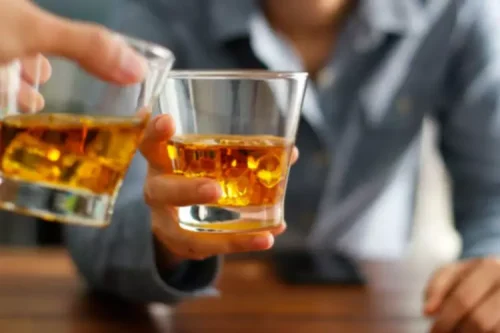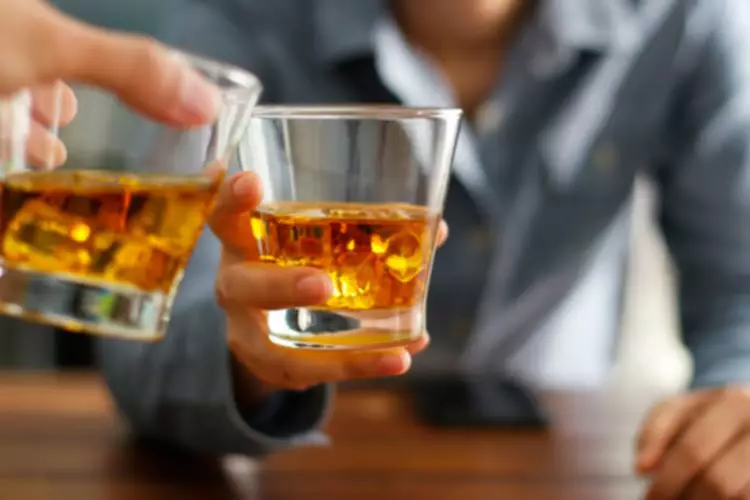
Use of this website and any information contained herein is governed by the Healthgrades User Agreement. Always consult a medical provider for diagnosis and treatment.
- Another way alcohol can contribute to cancer growth is by acting as a solvent, allowing carcinogenic substances to enter cells more easily, says Andrews.
- Although some of those effects can occur without alcohol consumption, avoiding alcohol helps decrease the risks.
- Drinking excessive alcohol is considered one of the most common causes of raised blood pressure.
Alcohol Consumption Recommendations and Limits
Similarly, when blood pressure increases, these receptors increase the stretching of the blood vessel walls in order to decrease blood pressure. “This complex interplay leads to elevated blood pressure and subsequent hypertension,” Ramnauth said. However, “since everyone has different physiology, many people may react to the same amount of alcohol in diverse ways,” he added. At Healthgrades, our Editorial Team works hard to develop complete, objective and meaningful health information to help people choose the right doctor, right hospital and right care. Our writers include physicians, pharmacists, and registered nurses with firsthand clinical experience.
- Therefore, you should always speak to your health care provider before consuming alcohol for heart health.
- It can occur as a result of a heart problem, endocrine (hormonal) dysfunction, and certain medications.
- The Centers for Disease Control and Prevention (CDC) notes that if a person has hypertension, they may have a higher risk of conditions such as heart attack, stroke, and heart disease.
- Understanding the physiological and psychological effects of alcohol consumption can help you make an informed choice about whether to raise a glass or take a pass on that next round.
- Hypotensive syndrome is the term used when more than one factor causes a sudden drop in blood pressure.
Heart Matters
- However, other research also suggests that alcohol increases blood pressure.
- Studies published in the American Heart Association’s scientific journals are peer-reviewed.
- Let your healthcare professional know if you often have trouble sleeping.
- And make sure you’re drinking plenty of water between drinks and once you’ve finished drinking, to rehydrate your body.
- Having more than three drinks in one sitting raises blood pressure for a short time.
First, there were only so many studies available for analysis. Researchers were unable to study in-depth the relationship between age, blood pressure, and alcohol intake. There were risks for misclassifications, and it is possible that some participants changed alcohol consumption amounts during the follow-up time. The study also didn’t look at how different types of alcohol influenced blood pressure. Some data relied on self-reporting; further data could include more diverse samples. One study found that three glasses of nonalcoholic red wine a day over a month led to a significant drop in blood pressure in men with heart disease risk factors.

The impact of high blood pressure and risk factors
If you’re overweight or have obesity, losing even a does alcohol drop blood pressure small amount of weight can help lower blood pressure. In general, blood pressure might go down by about 1 mm Hg with each kilogram (about 2.2 pounds) of weight lost. If you have high blood pressure, you may wonder if you need to take medicine to treat it.

Drinking too much alcohol can raise pressure on the walls of blood vessels to unhealthy levels. Having more than three drinks in one sitting raises blood pressure for a short time. Binge drinking over and over can cause long-term rises in blood pressure. Although red wine is often celebrated for its heart-protective properties, drinking alcohol isn’t risk-free.
The Association has strict policies to prevent these relationships from influencing the science content. Revenues from pharmaceutical and biotech companies, device manufacturers and health insurance providers and the Association’s overall financial information are available here. Although none of the participants had high blood pressure when they enrolled in the studies, their blood pressure measurements at the beginning did have an impact on the alcohol findings. This research was a dose-response meta-analysis of seven different nonexperimental cohort studies.
Does drinking alcohol affect blood pressure?

However, experts believe these effects may result from differences between people who drink moderately and those who do not. A person can speak with a qualified healthcare professional if they find it difficult to reduce their alcohol intake. A healthcare professional can help a person find treatment and support to help them stop drinking or lower their intake. A 2019 study suggests that drinking hibiscus tea twice per day alongside lifestyle and dietary strategies may help reduce blood pressure in people with stage 1 hypertension. The Centers for Disease Control and Prevention defines light drinking as three drinks or fewer per week and moderate drinking as no more than one drink per day for women and up to two per day for men. Alcohol consumption above those levels is considered heavy drinking.

Blood calcium levels
When the SNS gets activated by alcohol, it can increase heart rates and constrict blood vessels. Prolonged activation of the SNS can contribute to health issues like high blood pressure. If you already have high blood pressure, your doctor may have advised you to drink alcohol in moderation and cut back on your overall alcohol intake.
Your age and other risk factors linked to heart and blood pressure health will ultimately aid your decision with your doctor about drinking. But don’t expect any “all clears” for anything beyond light-moderate drinking. But if you’re younger than 50, particularly if you’re a woman, it’s not so clear.